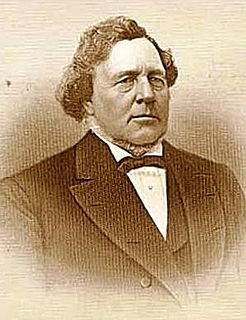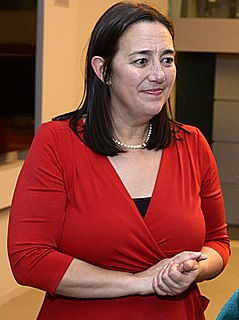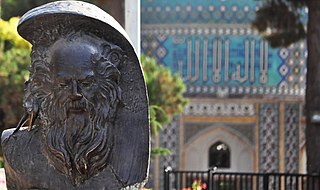A Quote by George A. Smith
How on the face of the earth could a man enjoy his religion, when he had been told by the Lord how to prepare for a day of famine, when, instead of doing so, he had fooled away that which would have sustained him and his family.
Related Quotes
Had Elizabeth been able to encounter his eye, she might have seen how well the expression of heartfelt delight, diffused over his face, became him; but, though she could not look, she could listen, and he told her of feelings, which, in proving of what importance she was to him, made his affection every moment more valuable.
When we reach the hilltops of heaven, and look back upon all the way whereby the Lord our God hath led us, how shall we praise Him who, before the eternal throne, undid the mischief which Satan was doing upon earth. How shall we thank Him because He never held His peace, but day and night pointed to the wounds upon His hands, and carried our names upon His breastplate!
He was about to go home, about to return to the place where he had had a family. It was in Godric’s Hollow that, but for Voldemort, he would have grown up and spent every school holiday. He could have invited friends to his house. . . . He might even have had brothers and sisters. . . . It would have been his mother who had made his seventeenth birthday cake. The life he had lost had hardly ever seemed so real to him as at this moment, when he knew he was about to see the place where it had been taken from him.
There was a man that hated his footprints and his shadow, so one day he thought that if he ran fast enough, his footprints and shadow would not be able to follow him and then he never ever had to look at them again. He ran and he ran as fast as he could, but the shadow and the footprints had no problems keeping up to him. And he ran even faster and all of a sudden he fell dead to the ground. But if he been standing still there hadn't been any footprints and if he had been resting under a tree his shadow had been swallowed of the trees shadow.
If man had written the Gospels - say Shakespeare or Eugene O'Neill - the story of the gospel would have been drastically different. They would have placed the prince in halls and palaces and had him walking among the great. They would have had him surrounded by the important and significant of the time. Potentates and kings would have been His companions. But how sweetly common was the real God-man; though He had inhabited all eternity, He had come down and was subject to the rising and the setting of the sun.
The stories my pupils told me were astonishing. One told how he had witnessed his cousin being shot in the back five times; another how his parents had died of AIDS. Another said that he'd probably been to more funerals than parties in his young life. For me - someone who had had an idyllic, happy childhood - this was staggering.
If cathedrals had been universities If dungeons of the Inquisition had been laboratories If Christians had believed in character instead of creed If they had taken from the bible only that which is GOOD and thrown away the wicked and absurd If temple domes had been observatories If priests had been philosophers If missionaries had taught useful arts instead of bible lore If astrology had been astronomy If the black arts had been chemistry If superstition had been science If religion had been humanity The world then would be a heaven filled with love, and liberty and joy
He lifted his gaze to the framed photograph of Tanya and him taken on their wedding day. God, she had been lovely. Her smile had come through her eyes straight from her heart. He had known unequivocally that she loved him. He believed to this day that she had died knowing that he loved her. How could she not know? He had dedicated his life to never letting her doubt it.
If he looked into her face, he would see those haunted, loving eyes. The hauntedness would irritate him - the love would move him to fury. How dare she love him? Hadn't she any sense at all? What was he supposed to do about that? Return it? How? What could his calloused hands produce to make her smile? What of his knowledge of the world and of life could be useful to her? What could his heavy arms and befuddled brain accomplish that would earn him his own respect, that would in turn allow him to accept her love?
At first, man was enslaved by the gods. But he broke their chains. Then he was enslaved by the kings. But he broke their chains. He was enslaved by his birth, by his kin, by his race. But he broke their chains. He declared to all his brothers that a man has rights which neither god nor king nor other men can take away from him, no matter what their number, for his is the right of man, and there is no right on earth above this right. And he stood on the threshold of freedom for which the blood of the centuries behind him had been spilled.
The first man . . . ventured to call food and nourishment the parts that had a little before bellowed and cried, moved and lived. How could his eyes endure the slaughter when throats were slit and hides flayed and limbs torn from limb? How could his nose endure the stench? How was it that the pollution did not turn away his taste, which made contact with the sores of others and sucked juices and serums from mortal wounds?
Man is man because he chanced to develop intelligence instead of instinct; otherwise he would to this day have remained among the anthropoid apes. He has turned away from nature, become unnatural, as it were, disliked the earth upon which he found himself, and changed the face of it somewhat to his liking.
A thousand for his love expired each day, And those who saw his face, in blank dismay Would rave and grieve and mourn their lives away- To die for love of that bewitching sight Was worth a hundred lives without his light. None could survive his absence patiently, None could endure this king's proximity- How strange it was that man could neither brook The presence nor the absence of his look!




































